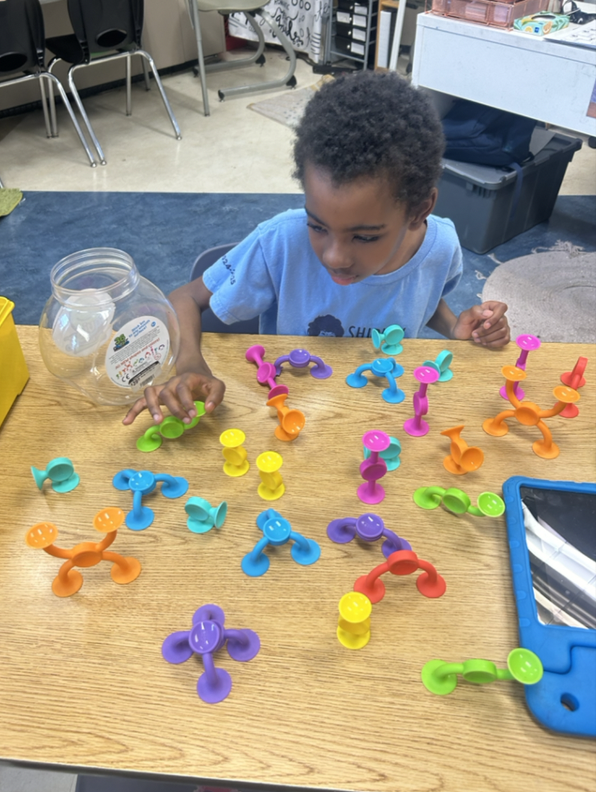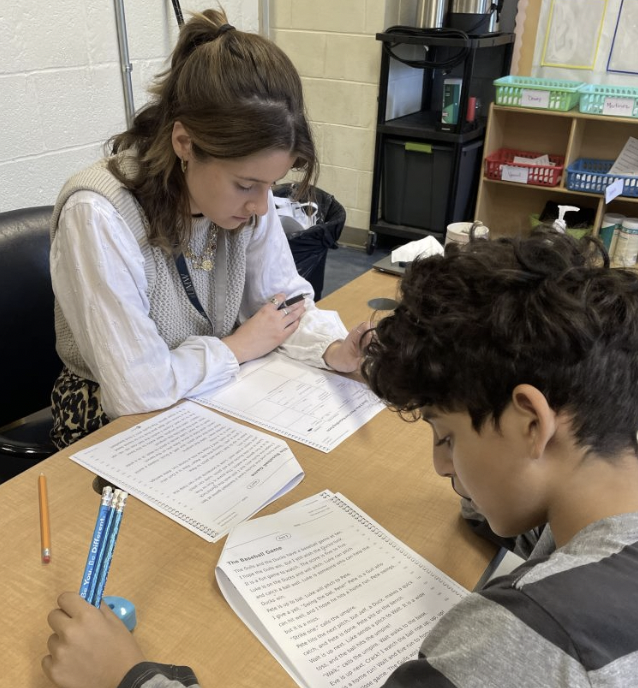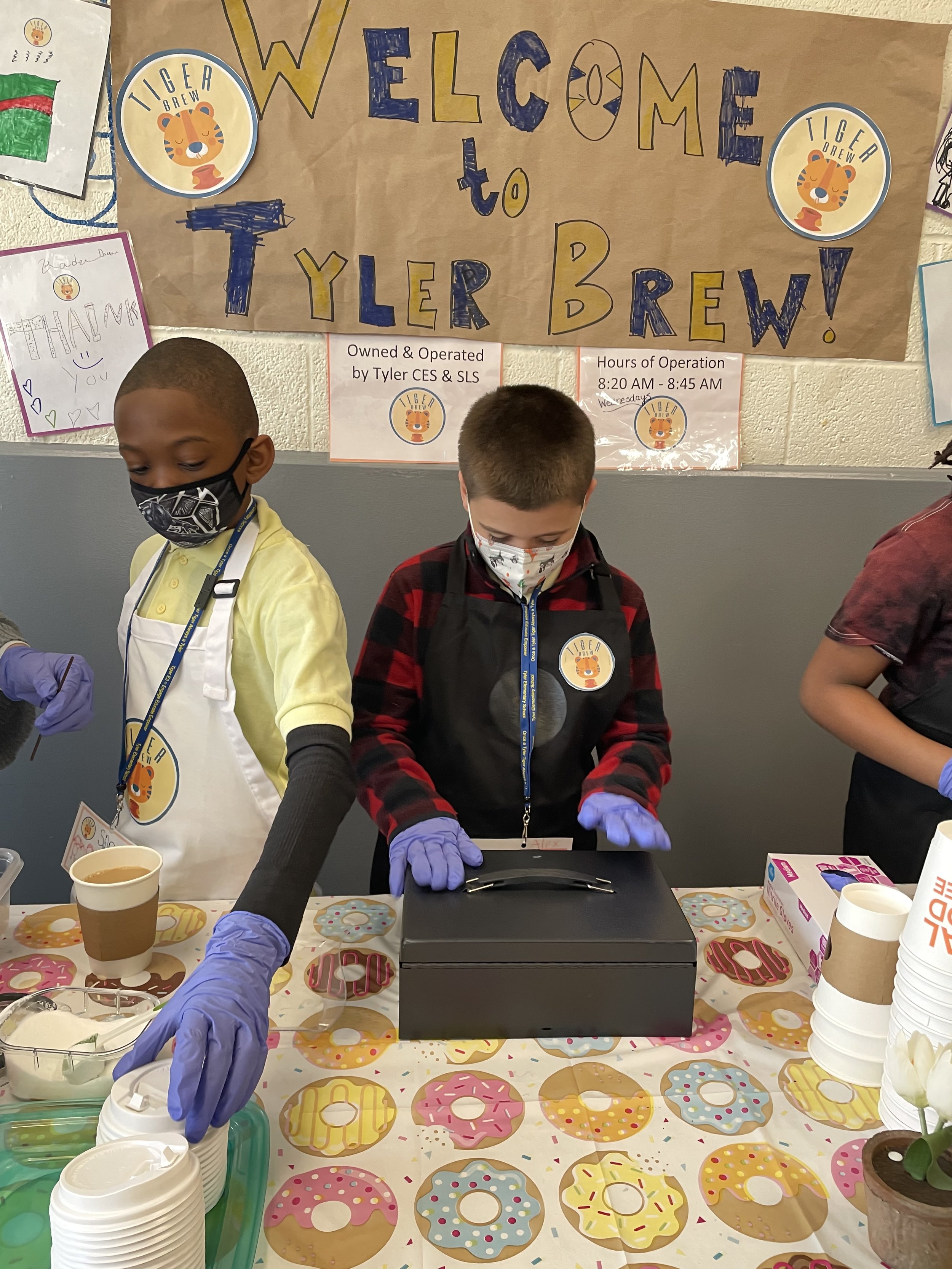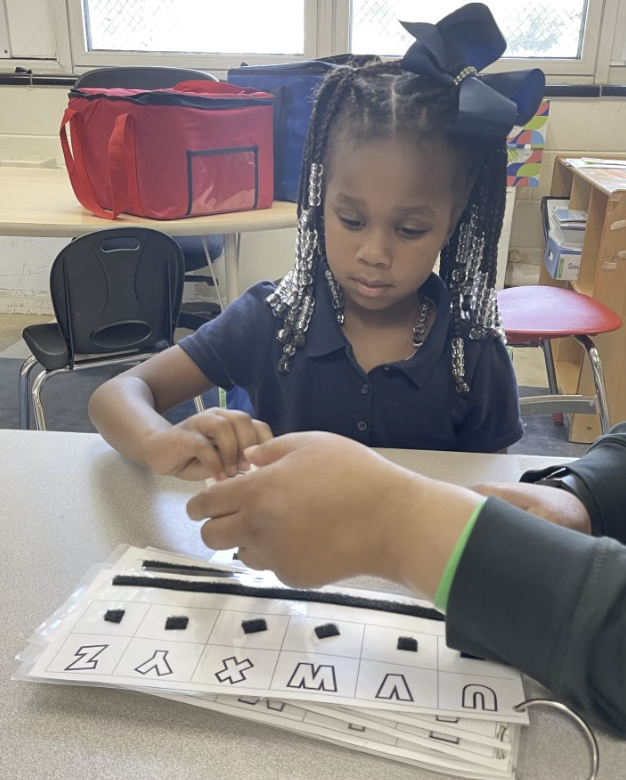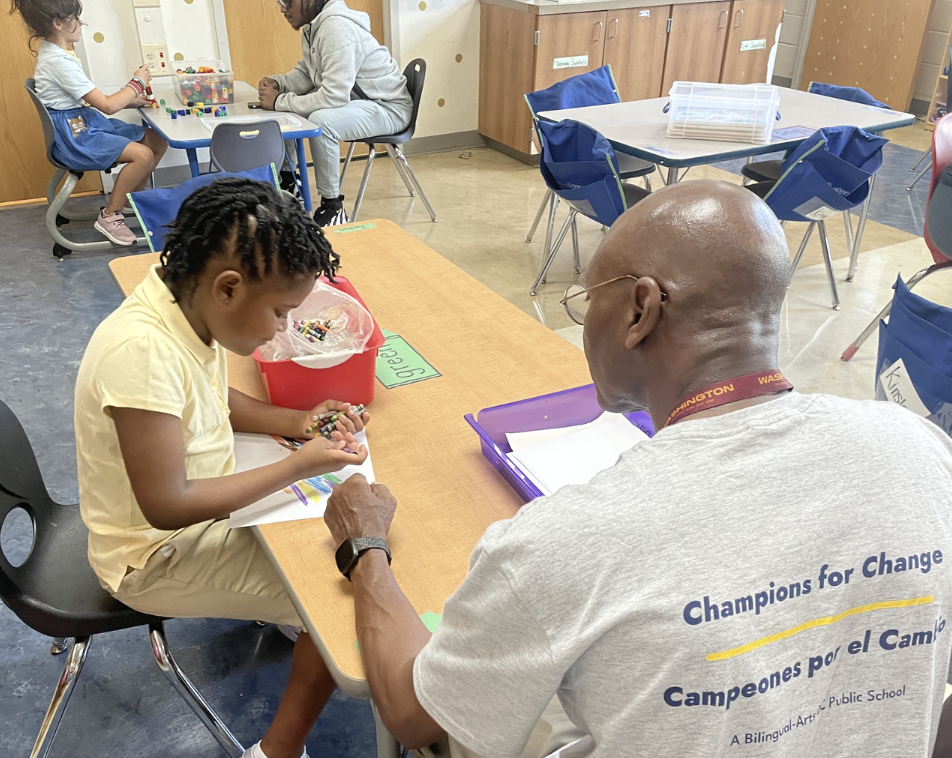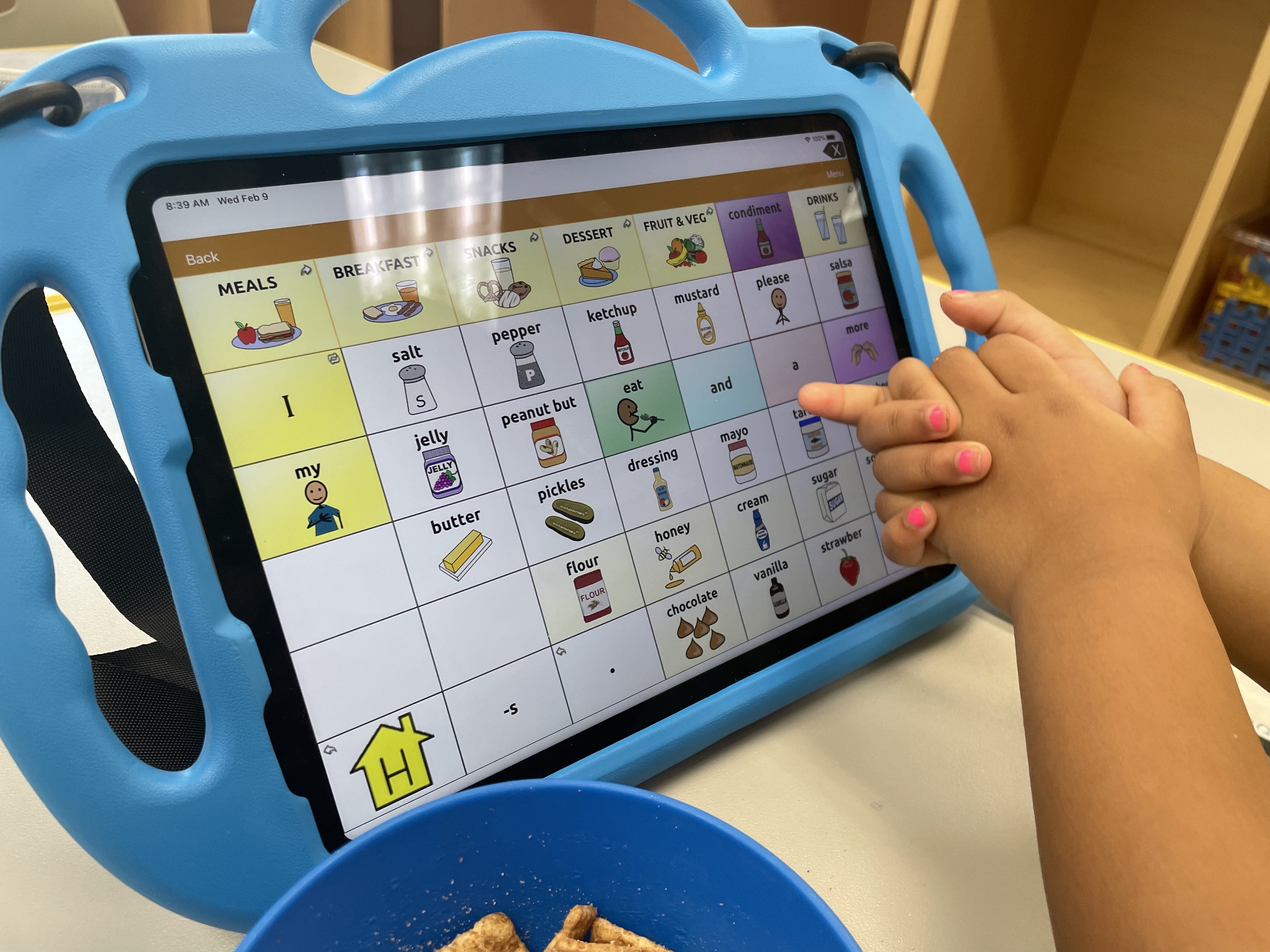
Special Education Resources
Special Education at Chisholm
Chisholm Elementary strives to be a school that is inclusive, compassionate. Chisholm offers a Special Education program that accommodates a variety of students depending on their individual needs.
Chisholm serves students in the inclusion environment (students with IEPs in general education classrooms) and students in a self-contained CES setting (students who receive their IEP hours in a specialized classroom setting). Specialized classrooms are Communication and Education Support (CES) classrooms.
CES classroom seats are assigned via Location of Service (LOS) letters from DCPS Central Office- Office of Specialized Instruction. If you are unsure of your student's LOS for an upcoming school year, please contact your student's current school.
CES classrooms have a low student-to-teacher ratio to ensure individualized attention. For further information about specialized programs within DCPS, please visit the Division of Specialized Instruction Resource Guide.
CES program classrooms are for students who have been identified with autism spectrum disorder or other types of learning needs. The CES classrooms are based on the principles of Applied Behavior Analysis (ABA) and use research-based practices derived from the science of learning and behavior . The CES program integrates an Applied Behavior Analysis (ABA) instructional framework, which includes a variety of teaching approaches rooted in the science of learning and behavior. We place a strong emphasis on promoting independence, honoring all forms of communication, and empowering a neurodiverse community within our classrooms and broader school environment.
Teachers and staff in these classrooms support the academic, behavioral, communication, and social-emotional needs of students to help them develop independent life skills. Within the ABA model, CES classrooms are supported by a Board Certified Behavior Analyst.
Additionally, all special education students have access to part-time inclusion during their specials classes (Art, Music, P.E. & Library) to develop and generalize skills among their general education peers.
Students in general education classrooms may also receive specialized instruction hours via their IEP, as well. Through a co-teaching model, special education teachers work with general education teachers to meet a students’ needs.
If students have services (speech therapy, occupational therapy, physical therapy, etc.) identified on their IEP, services are provided at school via their Related Service Provider (SLP, OT, PT, etc.)
As a community, Chisholm works to provide all students with the most appropriate environment based on their individualized needs to ensure their success academically, socially, and globally.
LOCAL SUMMER CAMPS
This list reflects local programs that families & therapists have recommended. If you have edits or would like to be added to the list, please contact: cristina.restrepo-harner@k12.dc.gov
Summer Opportunities: We will share local summer program updates as we learn more! Some family-favorite programs from prior years include:
Step-By-Step Therapeutic Camp (In the past, summer updates are shared on their IG page @stepbysteptherapeutic).
DPR KEEN (not a summer-specific camp, but has ongoing programs for students with disabilities)
Summer Play at Penfield Play Lab
HELPFUL LINKS & CONTACT
Denise Dantley, Special Education Coordinator & LEA and denise.dantley@k12.dc.gov
Cristina Restrepo-Harner, Program Coordinator & BCBA cristina.restrepo-harner@k12.dc.gov
SPEECH AND LANGUAGE THERAPY
The following resources are recommended by our SLP team at Chisholm to bring the learning home!
ReadWorks– (All Ages) A free website providing fiction and non-fiction reading passages by grade level. It will read a passage to a student and also includes pre-picked vocabulary that you can target in the passage. You can also get comprehension questions with answer choices for each passage.
Language Playroom– (All Ages) A website focused on different aspects of communication. Mainly for older elementary language users and articulation students. It includes activities and games for parents/ children to use at home.
Storyline Online – (All Ages) This is a channel that has celebrities read popular children’s books out loud. There are lots of read-aloud books on there.
Songs for Speech– (All Ages) A great YouTube channel with songs for early language development (including a Wh question song and a he/she song).
Simon’s Cat Wordless Videos– (All Ages) These cute little clips are awesome for sparking narration. None of these videos have words, so you can watch a video with your student and have them retell the events that had just happened.
KID’S NATIONAL GEOGRAPHIC– (All Ages) This website has high interest stories, especially for elementary-aged students. There are readings, videos, games and more here. This is also a great spot to find high interest stories and videos to teach vocabulary and comprehension.
COMMUNITY RESOURCES
DC Special Education Hub: Find resources, parent information events, & more at the DC SPED Hub. We are committed to helping families understand special education in the District of Columbia by connecting them with the tools, information, and support they need to make informed decisions to guide their child’s learning. https://specialeducation.dc.gov/
DC Autism Parents- Parent Support Group: “Looking for a support group where you can talk with other autism parents? Do you want to participate in a group while in your comfort zone? Join DCAP for our monthly support group! This event is free, space is limited, and registration is required.” Learn more & register on their website.
Fathers of Superheroes (IG @fathers_of_superheroes): Founded by a Chisholm parent, “Empowering fathers (male caregivers) of children with developmental and sensory differences through education, financial support and advocacy.
Skills on The Hill: Skills on the Hill offers parent workshops on a variety of topics. Learn more on their website.
Museums, Community Arts, & More: Many of our local museums and performing art centers offer sensory-friendly and autism-friendly experiences.
The National Gallery of Art offers a sensory-friendly program for families of children with sensory processing disorders during a Family Day community program.
Smithsonian Morning at the Museum is a free, sensory-friendly program for families of children, teenagers, and young adults with disabilities including intellectual disabilities, autism, sensory processing disorders, and other cognitive disabilities. See their website for more information and contact access@si.edu to be on the mailing list for Morning at the Museum.
The Kennedy Center hosts sensory-friendly performances, designed to create a performing arts experience that is welcome to all families with children with autism or other disabilities that create sensory sensitivities.
The Baltimore National Aquarium provides express entry to guests with special needs, as well as early entry on the first Saturday & Sunday of each month.
Imagination Stage in Bethesda offers ASL-interpreted & sensory-friendly experiences. Experiences include pre-visit social stories, videos, reduction in sound level, limited crowds, low lighting, designated break spaces, and more!
Check Eventbrite! There are many local organizations that offer free sensory-friendly experiences and often post their events to Eventbrite. Enter “sensory-friendly” or “autism” in the search tab for upcoming events.
